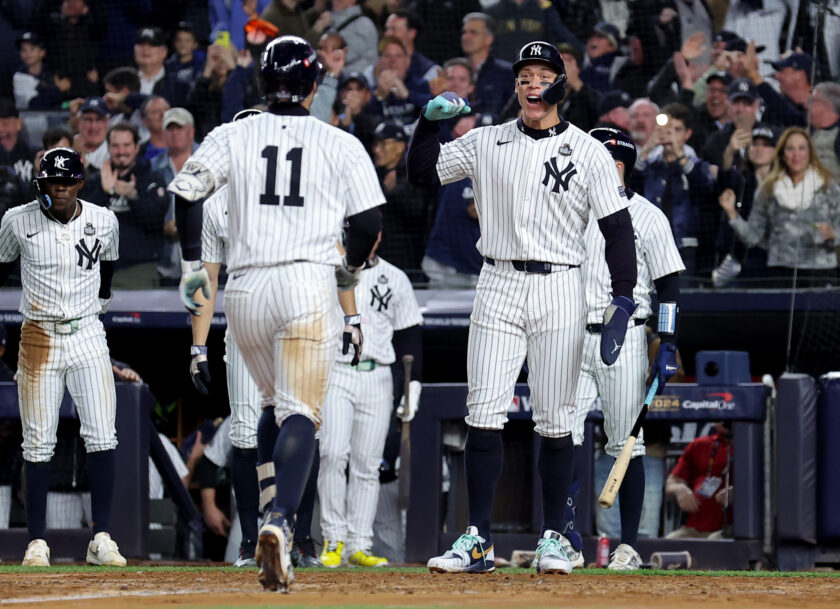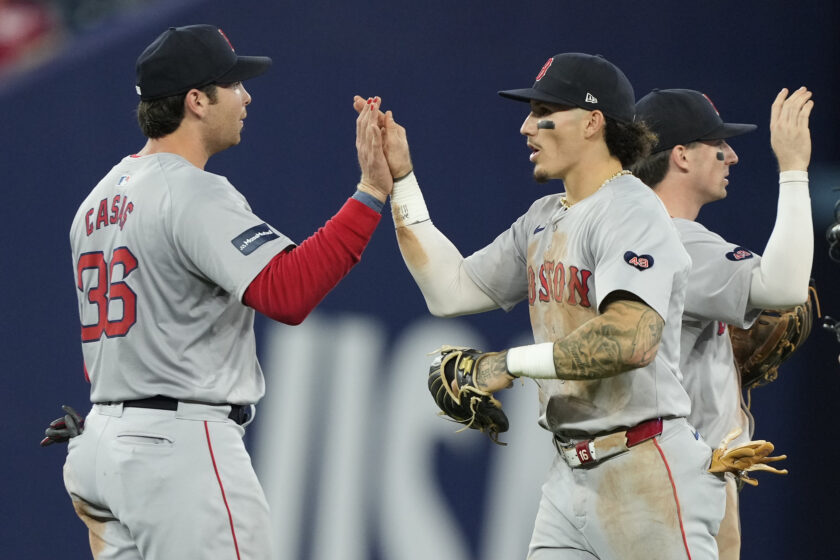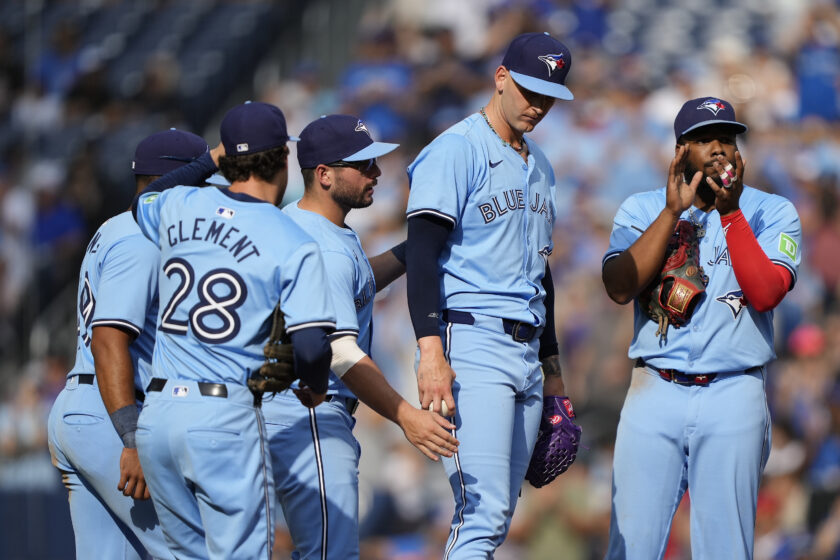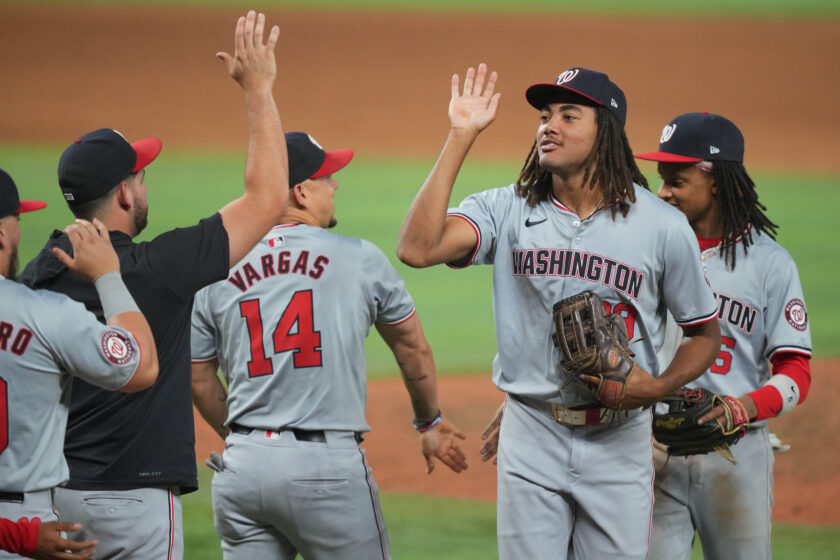Black History Month: Celebrating breakthrough athletes
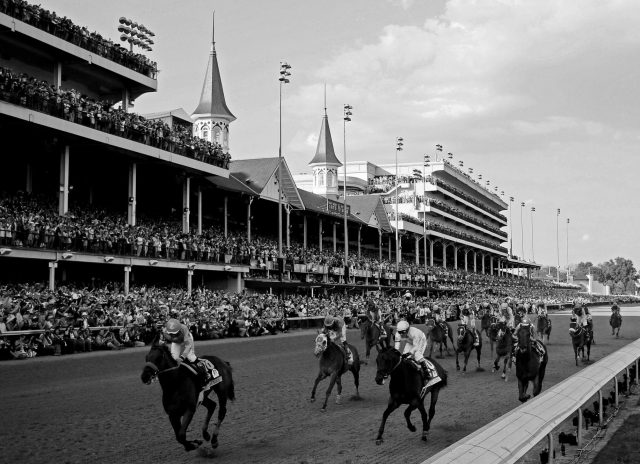
As we near the end of February, we are reminded of all the African-American athletes that were underappreciated in their sport.
Being a white sports fan, it’s very hard for me to fully understand the plight of the black athlete. Hearing stories and the disgusting and unconscionable things that occurred to many African-Americans is beyond what can humanly be expressed.
I was always taught to value people by their character. My parents, especially my mom, raised me to understand that a person’s value has most to do with what they do, not what they look like.
Many of my sports heroes growing up were African-American. Magic Johnson remains my favorite athlete of all-time. Jackie Robinson’s courage and determination inspire me every day. The racism and disgusting things that were said and done to him make me ashamed that people could stoop to such a level. When I was at ESPN I drew up “42 Reasons We Love Jackie Robinson” to honor his contributions to society.
Despite the obvious names that most American’s know, there are many other black athletes that not too many people know about.
The Kentucky Derby And Horse Racing
Horse racing is one sport where black jockeys were tremendously successful. The Kentucky Derby was once dominated by black athletes. The first Kentucky Derby took place in 1875 and was won by Oliver Lewis. Lewis, a 19-year-old African-American native Kentuckian, rode Aristides, a chestnut colt trained by a former slave, to a record-setting victory for a three-year-old. Of the 15 jockeys in that first Kentucky Derby, 13 were African-American. Black jockeys were very successful in the Kentucky Derby initially, winning 15 of the first 28 races.
One of the greatest jockeys of that time was Isaac Murphy. Murphy was the first to win consecutive derbies in 1890-91. He went on to win 44 percent of his races, an amazing winning percentage which still stands as the highest of all-time and will most likely never be equaled.
Alonzo “Lonnie” Clayton, at age 15 was the youngest to win in 1892. He was followed by James “Soup” Perkins, who began racing at age 11 and was victorious in 1895. Willie Simms won in 1896 and 1898. Jimmy “Wink” Winkfield, victorious in 1901 and 1902, was the last African American to win. Murphy, Simms, and Winkfield have been inducted into the National Museum of Racing and Hall of Fame in Saratoga Springs, New York.
What Happened?
Mainly Irish immigrants had resented black men’s success at horse racing. They began to force blacks off the tracks in the North, literally.
In New York in 1900, white jockeys told their trainers and owners not to mount black riders if they expected to win. During races, white riders boxed in black jockeys and rode them into and even over the rails. They even used their horsewhips against black jockeys during races.
Owners came to see that black riders had slim chances of winning as long as white riders would not accept them. Even Willie Simms, the only black Triple Crown-winning jockey had to beg for a mount.
By 1904, black riders had virtually disappeared from the major racetracks, including, Churchill Downs. No black man rode a horse in the Kentucky Derby between 1921 and 2000 until Marlon St. Julien rode Curule to a seventh-place finish.
Kevin Krigger was the last African-American to run in the Kentucky Derby. He ran Goldencents to a 17th place finish in 2013.
Remember as Black History Month ends that many black athletes deserve to be celebrated for their breakthrough accomplishments in many sports.
[sc name=”Generic Link Next” link=”https://elitesportsny.com/2018/02/27/new-york-knicks-frank-ntilikina-is-not-the-bust-you-want-him-to-be/” text=”Frank Ntilikina Is Not The Bust Knicks’ Fans Think He Is” ]Mark Everett Kelly, formerly of ESPN, Mark Everett is a 2-time Emmy Winner that had to retire from ESPN in 2008 due to side effects of cancer treatment. Since then Mark has been active as a Public Speaker, Author and Blogger. He is a Sports History Expert and his speeches inspire many who fight daily setbacks to pursue their goals.
Mark occassionally writes for ESNY. He is the author of "My Scars Tell A Story" which highlights his endless battle fighting the side effects of cancer treatment. He also blogs on his website, ckmagicsports.com about "Living As A Cancer Survivor". Mark also does not hide that he has a personal relationship with Jesus. He despises judgemental people and his speeches encourage and speak up for those who can't speak for themselves.

